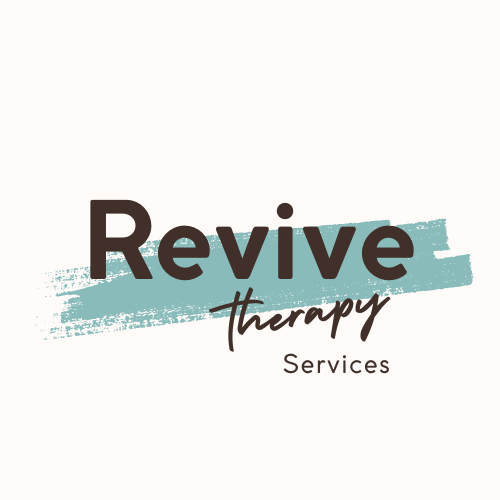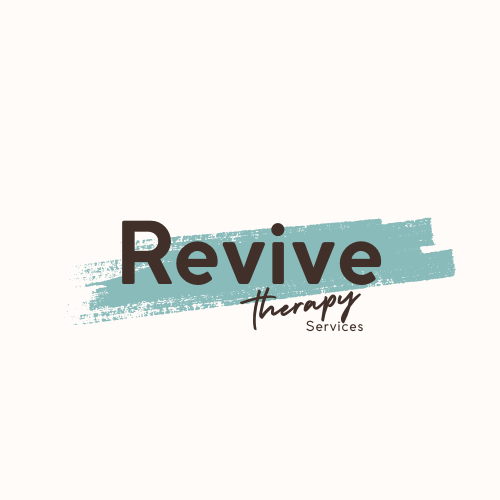When “Doing the Work” Becomes Another Trauma Response
By: Hannah Guy, LCSW
You’re reading the books.
You’ve taken the courses.
Your search history is full of nervous system hacks, somatic techniques, and trauma-related content.
You know all the right language. You know your attachment style. You’ve even got a therapist (or three) on your healing résumé.
And still—deep down—you feel stuck.
At Revive Therapy Services in Philadelphia, PA, we work with people who come in saying things like:
“I’ve been in therapy for years, but I still don’t feel safe in my body.”
“I understand where my trauma comes from, but I can’t seem to get out of these patterns.”
“I’m doing everything and it still doesn’t feel like enough.”
Here’s a truth we need to say out loud:
Sometimes, your healing journey turns into just another trauma response.
How Healing Becomes Just Another Way to Survive
It’s incredibly common for trauma survivors to approach healing the same way they approached survival—through performance, perfectionism, and hyper-independence.
When you grow up in environments where love or safety had to be earned, it makes sense that you’d carry that same belief into your healing process. You end up treating therapy and self-help like a job: if you just do it right enough, you’ll finally feel okay.
But healing doesn’t work that way.
It’s not about doing more—it’s about feeling more. And for many people, that’s the scariest part.
Signs You Might Be “Doing the Work” From a Trauma Response
Here are some expanded signs that your approach to healing may actually be rooted in unresolved trauma patterns:
1. Constantly Trying to “Fix” Yourself
You view your emotional experiences as problems to solve instead of signals to listen to.
You’re always trying to optimize your nervous system, monitor your reactions, or “get it together” faster.
The idea of just existing without actively working on yourself feels irresponsible—or even dangerous.
This doesn’t mean you’re obsessive or broken. It often means your body learned early on that you had to control everything to stay safe. Now, you’ve applied that same pressure to your healing.
2. Feeling Like You’re Failing at Healing
When you have a hard day or a strong reaction, your first thought is, “I should be past this by now.”
You feel ashamed that you still get triggered, still freeze, still dissociate—even after all the therapy.
Instead of offering yourself compassion, you criticize your progress and double down on your routines.
This is the inner critic, often born from survival-based self-policing, that says your healing must be earned.
3. Consuming Instead of Integrating
You absorb an endless stream of trauma education—books, podcasts, TikToks, posts—but you rarely pause to reflect on what you actually feel in your body.
There’s a disconnect between what you know and what you embody.
You’ve built awareness, but it hasn’t translated into actual safety.
Information alone doesn’t regulate a nervous system. Embodied experiences of safety do.
4. Intellectualizing Instead of Feeling
You can explain your trauma history in detail. You know your defenses. You’re fluent in the language of inner child, attachment theory, polyvagal concepts, and CPTSD.
But when it comes to sitting with your raw grief, fear, shame, or helplessness? You shut down. Or you dissociate. Or you try to rationalize your way out of it.
Intellectualizing is a brilliant survival strategy. It keeps you in control. But it also keeps you from actually processing what needs to be felt in the body.
You’re Not Broken. You’re Doing What You Were Taught.
It’s not your fault if healing turned into another high-functioning coping mechanism.
This happens all the time—especially to people who’ve been praised for being “self-aware,” “resilient,” or “always doing the work.”
The real issue?
You were never taught how to slow down safely.
You were never given permission to stop trying so hard.
You were never modeled what restorative healing looks like—not just productive healing.
And that’s where trauma-informed, body-based therapy makes all the difference.
Why Body-Based Trauma Therapy Works
At Revive Therapy Services, we specialize in trauma therapy that goes beyond traditional talk therapy. In Philadelphia, PA we offer:
EMDR Therapy: Helps your brain reprocess stuck memories, core beliefs, and emotional patterns that live beneath the surface of your thoughts.
Somatic Experiencing: A body-based approach that helps you build tolerance for sensation and create safety within your nervous system, at a pace that respects your capacity.
Nervous System Regulation Work: We focus on what’s happening in your body—not just in your mind—so you can move from survival mode into something more sustainable and real.
We don’t just give you more to-do lists. We help you untangle why your system is doing what it’s doing—and support it in finally letting go.
You Don’t Have to Earn Your Healing
You don’t have to do more.
You don’t have to perform your progress.
You don’t have to reach some invisible milestone to finally feel worthy of support.
Sometimes the bravest, most radical move in healing is to stop trying so hard.
If that’s where you are—burned out from trying to heal perfectly—we see you.
At Revive Therapy Services, we offer EMDR, Somatic Experiencing, IFS, and trauma-informed therapy for adults in Philadelphia, PA and virtually throughout Pennsylvania.
We work with people who are ready to stop surviving their healing and start living in it.
Let’s try something different—together. Our compassionate and experienced therapists—Salima, Mary, and Kianna—are here to walk alongside you. During your consultation, we'll help you determine if our approach feels right for you.
Book a free consultation today and let’s talk about what healing could look like when you’re not doing it alone.




